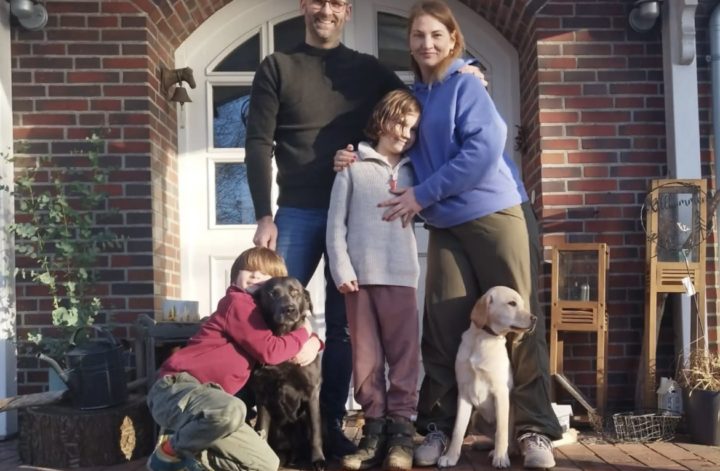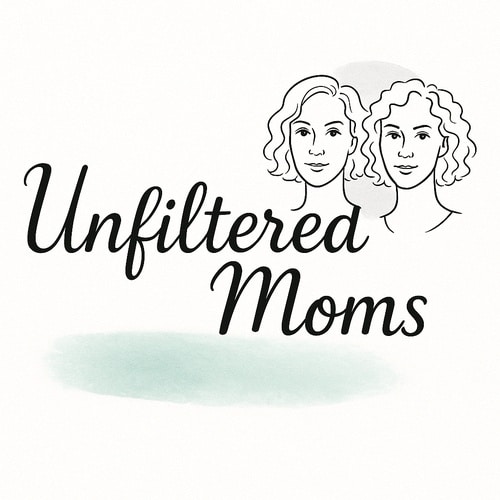Dear readers, we often share posts about autism because we know that some affected families read along with us, and because we believe it’s sooooo important to raise awareness about this topic. That’s why we were thrilled when Heike reached out to us and offered to share her life with two autistic sons. You can learn even more about Heike and her family in the documentary “Family Life with Autism”. You can watch this [documentary](https://www.ardmediathek.de/video/echtes-leben/familienleben-mit-autismus/das-erste/Y3JpZDovL2Rhc2Vyc3RlLmRlL2VjaHRlcyBsZWJlbi8yMDI0LTAyLTE4XzEzLTE1LU1FWg) [HERE in the ARD Mediathek](https://www.ardmediathek.de/video/echtes-leben/familienleben-mit-autismus/das-erste/Y3JpZDovL2Rhc2Vyc3RlLmRlL2VjaHRlcyBsZWJlbi8yMDI0LTAyLTE4XzEzLTE1LU1FWg). All the best to you, dear Heike!
—
Dear Heike, your sons Ben (8) and Henry (10) both have an autism disorder in the moderate spectrum. When did you first notice that your boys were different from other children?
With Henry, we noticed it very early, during infancy. He was constantly overstimulated, was a colicky baby, and I nursed him almost continuously – for a year and a half. Then, during toddlerhood, he developed tics, strong rituals, and preferences, and he had significant difficulties in social interactions, unable to recognize the emotions of other children.
With Ben, however, it was completely different. He was an incredibly easygoing baby, very relaxed, and just went along with things. At some point, he became very introverted, isolated himself repeatedly, and obsessively pursued his hobby of studying insects. When he was about 4 years old, we noticed that he couldn’t connect with other children and seemed quite unemotional. You could say both children stood out in kindergarten: Henry through aggression and very emotional behavior, and Ben through “nothing seems to get through to him” and isolation.
—
There are still many prejudices about autism. Which ones do you encounter most often, and how does that affect you?
We encounter prejudices often. People say things like: We need to be stricter, the children are walking all over us, we’re hiding behind the diagnosis, the children are just poorly raised, or we’re just looking for special treatment. Or: Autism is a trendy diagnosis, and you can’t even tell the children have anything wrong with them.
All of this hurts because life with the children isn’t easy, and we don’t need society’s prejudices on top of that. Since we’ve started being very open about it and are connected to an autism center, we’ve been able to handle it much better.
—
How long did it take to get a diagnosis, and how did that diagnosis feel?
It took longer with Henry because, unfortunately, not every psychologist is capable of recognizing autism. Children can mask their symptoms very well and quickly learn what is expected of them. Parents aren’t believed, and the family is labeled as having “emotional issues caused by parenting.” The problem is that without a diagnosis, you get almost no support. With Ben, we knew right away where to go and where we could get help. That was much more relaxed and routine.
—
Tell us about the boys. What do they need to make everyday life work well?
Everyday life only works with a lot of calm, structure, and relaxing activities. Homework or other school-related tasks are difficult because, in the boys’ eyes, school and home are two completely separate worlds. We rarely have visitors. Outings are rare and need to be very prepared and planned. Safe foods are essential. Alphabet soup and caramel popcorn must ALWAYS be in stock. When a meltdown happens, only food helps.
—
How do other children and teachers react to them? How are they socially integrated?
Other children react with a lot of uncertainty. They don’t really understand why Henry and Ben react the way they do in certain situations. The very few friends they have have been with them since kindergarten. Their families are aware of the situation and explain things repeatedly when conflicts arise. Strangers’ children tend to keep their distance.
Fortunately, the boys’ teachers are very open and understanding. We are in close communication and provide education about autism. It’s important to us that the school, autism center, youth welfare office, and we as a family form a circle and work together to help the children navigate (school) life.
—
What have you learned from your sons’ autism?
Through the children’s diagnoses, we’ve learned to be nonjudgmental and open-minded. To look beyond the surface. Everyone is good and special in their own way. Inclusion is just beginning – there’s still a lot to do. We’ve also learned to trust our instincts. With love and understanding, you can achieve anything.
—
What do you wish for your children?
I wish for our children to continue on their paths. They are so different, but absolutely wonderful. Henry is incredibly loving and emotional, wearing his heart on his sleeve. Ben is so funny and original, making us laugh every day. There will always be people who approach them with prejudice and ill will. I hope they are well-prepared for that.
—
And what would you like to say to parents whose children have just received a diagnosis?
To parents who have just received their child’s diagnosis, I want to say that you are amazing parents doing incredible work. Stay strong and courageous as you advocate for your children. The children aren’t doing it on purpose, and bad days show how much they trust their parents to be themselves.
Connecting with other affected parents is incredibly valuable and important and helps you get back on track during tougher phases. If you have questions or want to share experiences, feel free to reach out to us.



